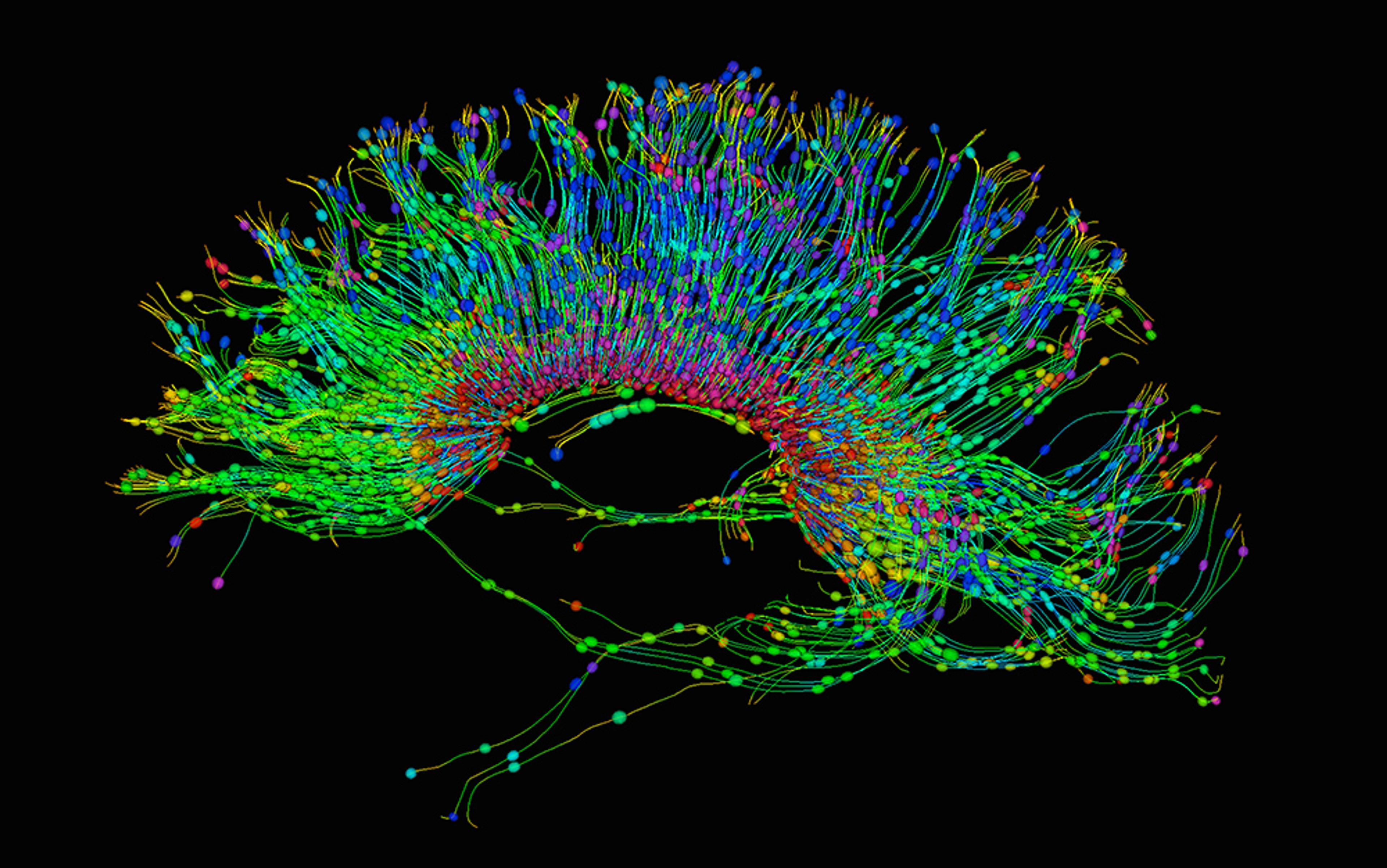As I was growing up in England in the latter half of the 20th century, the concept of intelligence loomed large. It was aspired to, debated and – most important of all – measured. At the age of 11, tens of thousands of us all around the country were ushered into desk-lined halls to take an IQ test known as the 11-Plus. The results of those few short hours would determine who would go to grammar school, to be prepared for university and the professions; who was destined for technical school and thence skilled work; and who would head to secondary modern school, to be drilled in the basics then sent out to a life of low-status manual labour.
The idea that intelligence could be quantified, like blood pressure or shoe size, was barely a century old when I took the test that would decide my place in the world. But the notion that intelligence could determine one’s station in life was already much older. It runs like a red thread through Western thought, from the philosophy of Plato to the policies of UK prime minister Theresa May. To say that someone is or is not intelligent has never been merely a comment on their mental faculties. It is always also a judgment on what they are permitted to do. Intelligence, in other words, is political.
Sometimes, this sort of ranking is sensible: we want doctors, engineers and rulers who are not stupid. But it has a dark side. As well as determining what a person can do, their intelligence – or putative lack of it – has been used to decide what others can do to them. Throughout Western history, those deemed less intelligent have, as a consequence of that judgment, been colonised, enslaved, sterilised and murdered (and indeed eaten, if we include non-human animals in our reckoning).
It’s an old, indeed an ancient, story. But the problem has taken an interesting 21st-century twist with the rise of Artificial Intelligence (AI). In recent years, the progress being made in AI research has picked up significantly, and many experts believe that these breakthroughs will soon lead to more. Pundits are by turn terrified and excited, sprinkling their Twitter feeds with Terminator references. To understand why we care and what we fear, we must understand intelligence as a political concept – and, in particular, its long history as a rationale for domination.
The term ‘intelligence’ itself has never been popular with English-language philosophers. Nor does it have a direct translation into German or ancient Greek, two of the other great languages in the Western philosophical tradition. But that doesn’t mean philosophers weren’t interested in it. Indeed, they were obsessed with it, or more precisely a part of it: reason or rationality. The term ‘intelligence’ managed to eclipse its more old-fashioned relative in popular and political discourse only with the rise of the relatively new-fangled discipline of psychology, which claimed intelligence for itself. Although today many scholars advocate a much broader understanding of intelligence, reason remains a core part of it. So when I talk about the role that intelligence has played historically, I mean to include this forebear.
The story of intelligence begins with Plato. In all his writings, he ascribes a very high value to thinking, declaring (through the mouth of Socrates) that the unexamined life is not worth living. Plato emerged from a world steeped in myth and mysticism to claim something new: that the truth about reality could be established through reason, or what we might consider today to be the application of intelligence. This led him to conclude, in The Republic, that the ideal ruler is ‘the philosopher king’, as only a philosopher can work out the proper order of things. And so he launched the idea that the cleverest should rule over the rest – an intellectual meritocracy.
This idea was revolutionary at the time. Athens had already experimented with democracy, the rule of the people – but to count as one of those ‘people’ you just had to be a male citizen, not necessarily intelligent. Elsewhere, the governing classes were made up of inherited elites (aristocracy), or by those who believed they had received divine instruction (theocracy), or simply by the strongest (tyranny).
At the dawn of Western philosophy, intelligence became identified with the European, educated, male human
Plato’s novel idea fell on the eager ears of the intellectuals, including those of his pupil Aristotle. Aristotle was always the more practical, taxonomic kind of thinker. He took the notion of the primacy of reason and used it to establish what he believed was a natural social hierarchy. In his book The Politics, he explains: ‘[T]hat some should rule and others be ruled is a thing not only necessary, but expedient; from the hour of their birth, some are marked out for subjection, others for rule.’ What marks the ruler is their possession of ‘the rational element’. Educated men have this the most, and should therefore naturally rule over women – and also those men ‘whose business is to use their body’ and who therefore ‘are by nature slaves’. Lower down the ladder still are non-human animals, who are so witless as to be ‘better off when they are ruled by man’.
So at the dawn of Western philosophy, we have intelligence identified with the European, educated, male human. It becomes an argument for his right to dominate women, the lower classes, uncivilised peoples and non-human animals. While Plato argued for the supremacy of reason and placed it within a rather ungainly utopia, only one generation later, Aristotle presents the rule of the thinking man as obvious and natural.
Needless to say, more than 2,000 years later, the train of thought that these men set in motion has yet to be derailed. The late Australian philosopher and conservationist Val Plumwood has argued that the giants of Greek philosophy set up a series of linked dualisms that continue to inform our thought. Opposing categories such as intelligent/stupid, rational/emotional and mind/body are linked, implicitly or explicitly, to others such as male/female, civilised/primitive, and human/animal. These dualisms aren’t value-neutral, but fall within a broader dualism, as Aristotle makes clear: that of dominant/subordinate or master/slave. Together, they make relationships of domination, such as patriarchy or slavery, appear to be part of the natural order of things.
Western philosophy, in its modern guise, is often taken to begin with that arch dualist, René Descartes. Unlike Aristotle, he didn’t even allow for a continuum of diminishing intelligence among other animals. Cognition, he claimed, was the business of humanity. He was reflecting more than a millennium of Christian theology, which made intelligence a property of the soul, a spark of the divine reserved only for those lucky enough to be made in God’s image. Descartes rendered nature literally mindless, and so devoid of intrinsic value – which thereby legitimated the guilt-free oppression of other species.
The idea that intelligence defines humanity persisted into the Enlightenment. It was enthusiastically embraced by Immanuel Kant, probably the most influential moral philosopher since the ancients. For Kant, only reasoning creatures had moral standing. Rational beings were to be called ‘persons’ and were ‘ends in themselves’. Beings that were not rational, on the other hand, had ‘only a relative value as means, and are therefore called things’. We could do with them what we liked.
According to Kant, the reasoning being – today, we’d say the intelligent being – has infinite worth or dignity, whereas the unreasoning or unintelligent one has none. His arguments are more sophisticated, but essentially he arrives at the same conclusion as Aristotle: there are natural masters and natural slaves, and intelligence is what distinguishes them.
For many decades, the advent of formal intelligence testing tended to exacerbate rather than remedy the oppression of women
This line of thinking was extended to become a core part of the logic of colonialism. The argument ran like this: non-white peoples were less intelligent; they were therefore unqualified to rule over themselves and their lands. It was therefore perfectly legitimate – even a duty, ‘the white man’s burden’ – to destroy their cultures and take their territory. In addition, because intelligence defined humanity, by virtue of being less intelligent, these peoples were less human. They therefore did not enjoy full moral standing – and so it was perfectly fine to kill or enslave them.
The same logic was applied to women, who were considered too flighty and sentimental to enjoy the privileges afforded to the ‘rational man’. In 19th-century Britain, women were less well-protected under law than domestic animals, as the historian Joanna Bourke at Birkbeck University of London has shown. Perhaps it’s not surprising, then, that for many decades the advent of formal intelligence testing tended to exacerbate rather than remedy the oppression of women.
Sir Francis Galton is usually taken to be the originator of psychometrics, the ‘science’ of measuring the mind. He was inspired by The Origin of Species (1859) written by his cousin Charles Darwin. It led Galton to believe that intellectual ability was hereditary and could be enhanced through selective breeding. He decided to find a way to scientifically identify the most able members of society and encourage them to breed – prolifically, and with each other. The less intellectually capable should be discouraged from reproducing, or indeed prevented, for the sake of the species. Thus eugenics and the intelligence test were born together. In the following decades, vast numbers of women across Europe and America were forcibly sterilised after scoring poorly on such tests – 20,000 in California alone.
Scales of intelligence have been used to justify some of the most terrible acts of barbarism in history. But the rule of reason has always had its critics. From David Hume to Friedrich Nietzsche, and Sigmund Freud through to postmodernism, there are plenty of philosophical traditions that challenge the notion that we’re as intelligent as we’d like to believe, and that intelligence is the highest virtue.
The meritocracy of intelligence has always been just one account of social worth – albeit a highly influential one. Entry to certain schools and professions, such as the UK Civil Service, is based on intelligence tests, but other domains emphasise different qualities, such as creativity or entrepreneurial spirit. And though we might hope that our public officials are smart, we don’t always choose to elect the smartest-seeming politicians. (Still, it’s revealing that even a populist politician such as Donald Trump felt the need to claim, of his administration, that ‘we have by far the highest IQ of any cabinet ever assembled.’)
Rather than challenging the hierarchy of intelligence as such, many critics have focused on attacking the systems that allow white, male elites to rise to the top. The 11-Plus exam that I took is an interesting, deeply equivocal example of one such system. It was intended to identify bright young things from all classes and creeds. But, in reality, those who passed came disproportionately from the better-resourced, white middle classes, whose members found themselves thereby reaffirmed in their position and advantages.
So when we reflect upon how the idea of intelligence has been used to justify privilege and domination throughout more than 2,000 years of history, is it any wonder that the imminent prospect of super-smart robots fills us with dread?
From 2001: A Space Odyssey to the Terminator films, writers have fantasised about machines rising up against us. Now we can see why. If we’re used to believing that the top spots in society should go to the brainiest, then of course we should expect to be made redundant by bigger-brained robots and sent to the bottom of the heap. If we’ve absorbed the idea that the more intelligent can colonise the less intelligent as of right, then it’s natural that we’d fear enslavement by our super-smart creations. If we justify our own positions of power and prosperity by virtue of our intellect, it’s understandable that we see superior AI as an existential threat.
Natural stupidity, rather than artificial intelligence, remains the greatest risk
This narrative of privilege might explain why, as the New York-based scholar and technologist Kate Crawford has noted, the fear of rogue AI seems predominant among Western white men. Other groups have endured a long history of domination by self-appointed superiors, and are still fighting against real oppressors. White men, on the other hand, are used to being at the top of the pecking order. They have most to lose if new entities arrive that excel in exactly those areas that have been used to justify male superiority.
I don’t mean to suggest that all our anxiety about rogue AI is unfounded. There are real risks associated with the use of advanced AI (as well as immense potential benefits). But being oppressed by robots in the way that, say, Australia’s indigenous people have been oppressed by European colonists is not number one on the list.
We would do better to worry about what humans might do with AI, rather than what it might do by itself. We humans are far more likely to deploy intelligent systems against each other, or to become over-reliant on them. As in the fable of the sorcerer’s apprentice, if AIs do cause harm, it’s more likely to be because we give them well-meaning but ill-thought-through goals – not because they wish to conquer us. Natural stupidity, rather than artificial intelligence, remains the greatest risk.
It’s interesting to speculate about how we’d view the rise of AI if we had a different view of intelligence. Plato believed that philosophers would need to be cajoled into becoming kings, since they naturally prefer contemplation to mastery over men. Other traditions, especially those from the East, see the intelligent person as one who scorns the trappings of power as mere vanity, and who removes him or herself from the trivialities and tribulations of quotidian affairs.
Imagine if such views were widespread: if we all thought that the most intelligent people were not those who claimed the right to rule, but those who went to meditate in remote places, to free themselves of worldly desires; or if the cleverest of all were those who returned to spread peace and enlightenment. Would we still fear robots smarter than ourselves?






